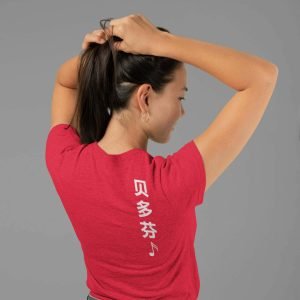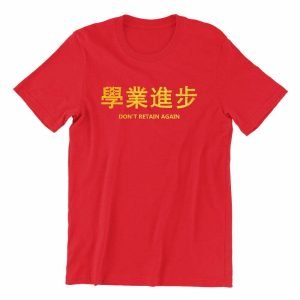When is the Best Time to Drop a ‘Hor’ for Maximum Drama in Singlish?
Right when you want to turn a normal sentence into a spicy, passive-aggressive bomb — that’s the golden moment for using ‘hor’ in Singlish conversations. The word might seem small, but when used correctly, it can flip an ordinary convo into a full-blown plot twist. The trick lies in mastering the importance of timing in Singlish, tone and target.
-
Grunge, hokkien, Romper, singlish, Typography
$25.00 Select options This product has multiple variants. The options may be chosen on the product page
TL;DR – Let’s Break it Down Hor!
- ‘Hor’ is Singlish’s ultimate passive-aggressive punctuation mark. It softens commands but can also add subtle shade to your Singaporean lingo.
- Timing is queen. Dropping ‘hor’ at the end of statements makes it sound like you’re daring the listener to disagree — perfect for drama in Singlish.
- Use with purpose — don’t anyhow whack or you’ll sound pretentious or awkward in your conversations.
- Drama-level maxes out when the statement is slightly controversial but the ‘hor’ adds plausible deniability.
- Cultural etiquette matters. Don’t throw it at elders or authority unless you want to kena scolding hor.
Understanding the Significance of ‘Hor’ in Singlish
Importance of ‘Hor’ in Singaporean Culture
‘Hor’ is the verbal side-eye of Singlish and a cornerstone of Singaporean lingo. It’s the uncle auntie version of the Gen Z emoji. You use it not to question, but to insert just enough doubt or challenge to stir the pot. It’s iconic because it blurs intent — was that sentence a suggestion, command or subtle judgement?
In Singaporean culture, where direct confrontation is often replaced with pointed implication or supernatural-level subtlety, ‘hor’ becomes a survival tool for creating drama in Singlish conversations. It’s how parents discipline, how friends warn, and how colleagues shade without HR involvement. Simply put, it’s Singlish social strategy — part etiquette, part strategy, always drama.
Cultural Etiquette of Using ‘Hor’ in Conversations
Don’t play-play, this one got rules for proper Singaporean lingo:
-
hashtag, KaoBeiKing, Quote, Singlish/Hokkien, T-shirts, Typography
Price range: $30.00 through $38.00 Select options This product has multiple variants. The options may be chosen on the product page -
KaoBeiKing, Parody, Singlish/Hokkien, T-shirts, Typography
Price range: $30.00 through $38.00 Select options This product has multiple variants. The options may be chosen on the product page
- Use upward-inflection. If you say ‘hor’ with a flat tone, it sounds awkward. Like robot channelling kopi talk.
- Seniority counts. You don’t use ‘hor’ on your boss unless you really buay tahan already or very close. Respect lor.
- Intimacy matters. ‘Hor’ can feel passive-aggressive if misused. Use with closer friends, family, or those who sibei understand your vibe.
In other words, it’s not what you say, it’s who you say it to — and with skill. Like seasoning, too much hor will ruin the dish and kill the drama in Singlish.
Mastering the Art of Using ‘Hor’ in Singaporean Conversations
The Relationship Drama: Adding ‘Hor’ for Maximum Impact
Let’s say you’re in the middle of a good old passive-aggressive squabble with bae and want to use Singaporean lingo effectively:
“You always never reply my messages on time hor.”
That ‘hor’ hits different. Instead of flaring into direct accusation, it leaves the door open for awkward defense or quiet guilt. It’s the romantic version of twisting the knife — gently. The importance of timing in Singlish becomes clear when you compare:
- “I okay with you going out…” (ambiguous)
- “I okay with you going out, hor?” (You sure you want to test fate?)
Even in friendships it adds spice for maximum drama in Singlish:
“You say you wanted to diet hor, but then you jio McSpicy…”
Bam. Packaging concern and judgment in one syllable. Clean.
Timing is Key: When to Drop a ‘Hor’ for Maximum Drama
If you time ‘hor’ wrong, you’ll either defuse your point or come off sounding forced. Let’s look at the core timing mechanics that showcase the importance of timing in Singlish:
- Peak drama moment: When someone just tried to siam blame and you’re gently shiok-ing it back with your Singaporean lingo.
- When issuing a warning: “Better finish the report by tomorrow hor.” Said sweetly, yet stabs like a blade.
- Calling out false info: “But you said that one was confirmed alr hor?”
Golden rule for using ‘hor’ in Singlish conversations: end with the ‘hor’. It’s your mic drop. Placing it mid-sentence ruins the rhythm. Like cooking maggi then throw away seasoning packet — you missed the point.
Embracing Singaporean Slang: Improving Conversations
Enhancing Conversational Skills with ‘Hor’
-
Chinese, KaoBeiKing, Singlish/Hokkien, T-shirts, Typography, Women
Price range: $30.00 through $38.00 Select options This product has multiple variants. The options may be chosen on the product page -
Chinese, Chinese New Year, Ladies, Mens, T-shirts
Price range: $35.00 through $43.00 Select options This product has multiple variants. The options may be chosen on the product page
Skillful use of ‘hor’ adds depth to your communication — you become Shakespeare of the kopitiam when you master this Singaporean lingo. You sound fluent in the unsaid. Here are ways ‘hor’ levels you up and creates perfect drama in Singlish:
- Build local credibility: Especially for returning Singaporeans or expats trying to blend in with authentic Singaporean lingo.
- Empower soft leadership: Encouraging people to act without sounding bossy. “Settle this part by 3pm hor — thanks.”
- Maintain polite authority: Works wonders in family, group chats, workplace conversations.
Not sure when to start using ‘hor’ in Singlish conversations? Mirror how aunties and uncles use it — they’re the true masters of the importance of timing in Singlish.
Common Mistakes to Avoid when Using ‘Hor’ in Singlish
Ah yes, the ‘hor-ho’ horror stories. Don’t fall into these traps when trying to master Singaporean lingo:
- Mixing up ‘hor’ with ‘lor’: Two very different energies for drama in Singlish. ‘Hor’ challenges without being hostile. ‘Lor’ is more resigned.
- Using too often: Overusing makes you sound like a bot trying to imitate being local. Less is more for authentic Singaporean lingo.
- Wrong tone: If you go monotone or fake accent, you’ll get eye roll instead of dramatic applause when using ‘hor’ in Singlish conversations.
- Dropping it in writing without voice context: Text “You really very late hor.” might come off more hostile than if said out loud nicely.
Final Thoughts: Your License to Hor Has Been Approved Hor!
Look lah, in Singlish, the word ‘hor’ is proof that Singaporean lingo is more than just vocabulary—it’s culture, mood, and vibes, all rolled into one syllable. Master the importance of timing in Singlish with ‘hor’, and you won’t only sound more Singaporean — you’ll also be subtly sassy, sweetly savage, or silently superb, depending on your agenda for drama in Singlish.
So next time someone tries to act blur or do one kind, you know what to say hor? That’s right. Say it with confidence when using ‘hor’ in Singlish conversations. Say it with power. Say it with drama. Hor.
Frequently Asked Questions
- Is ‘hor’ rude to use?
Not necessarily. Depends on tone and context — use with care and good timing in your Singaporean lingo. - Can non-locals use ‘hor’ conversationally?
Yes, if done genuinely and respectfully. Don’t force it when learning Singlish. - What’s the difference between ‘hor’ and ‘meh’?
‘Hor’ challenges from a position of “I know.” ‘Meh’ implies doubt or surprise. Different vibes in Singaporean lingo. - Can ‘hor’ be used in professional settings?
Use cautiously. It may be suitable in casual internal convos, but avoid during formal meetings with clients. - Why do aunties use ‘hor’ so much?
It helps them manage tone and indirect expression while still asserting themselves in Singlish conversations. It’s an art form. - Is ‘hor’ gender-specific?
No — all genders in Singapore use it. Drama in Singlish is equal opportunity hor. - When should I avoid using ‘hor’?
Avoid during formal occasions, court settings, or when unclear communication could backfire.








